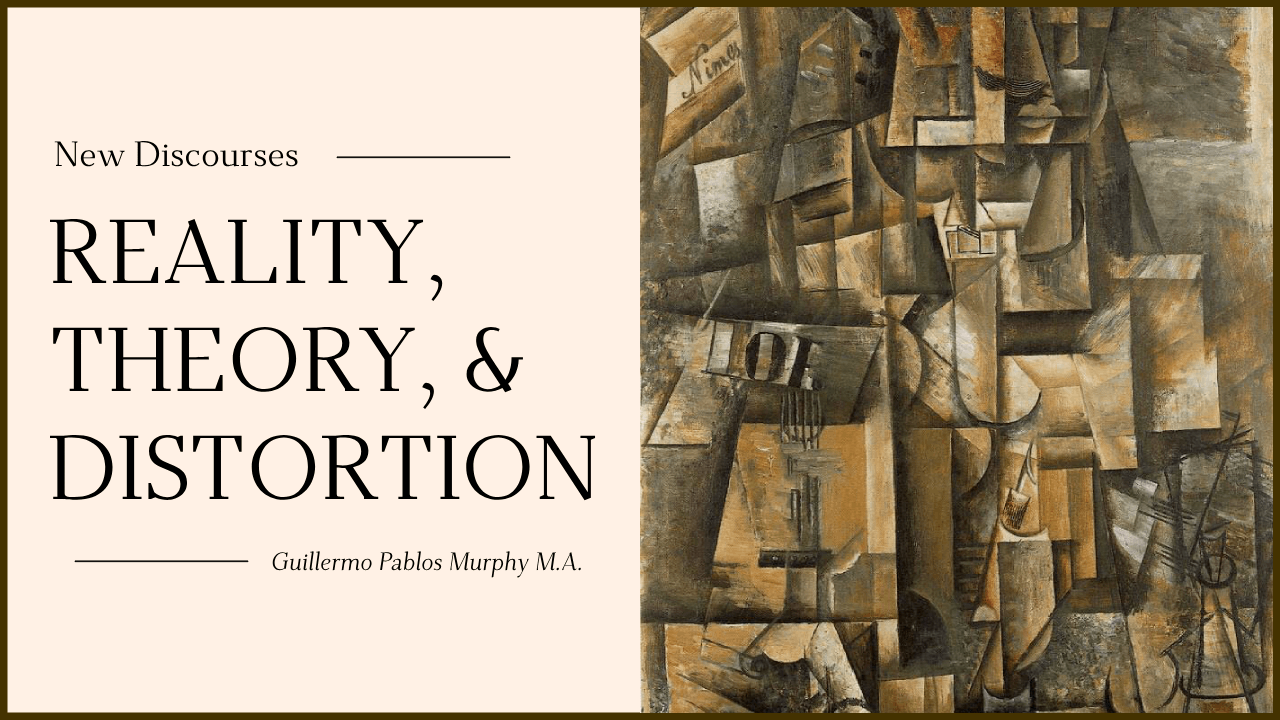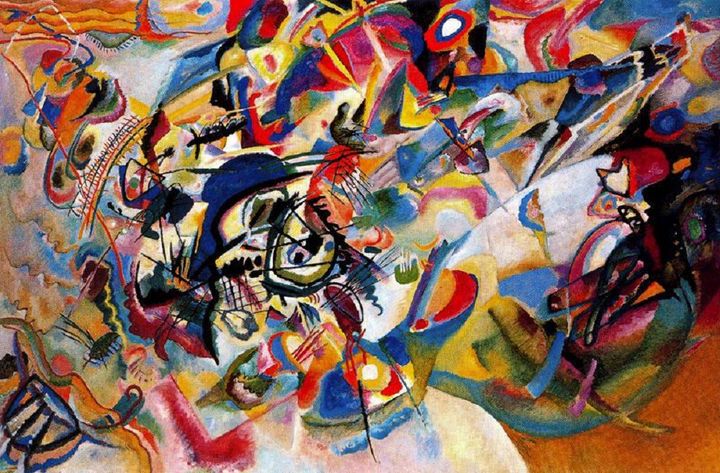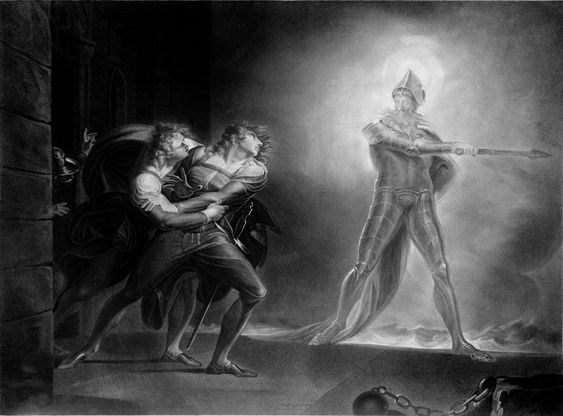How We Map Our Thoughts and Distort Reality
"...All frameworks are wrong, but some are useful."

📩 If you have any questions, comments, or suggestions - please contact Guillermo Pablos Murphy on Tela:
tela.app/id/guillermo_pablos_murphy/621afa
🤝 Add Guillermo Pablos Murphy on LinkedIn:
linkedin.com/in/guillermo-pablos-murphy
🌎 How to join Tela Network:
tela.network/join
A slightly modified version of this article was used as the script for the second episode of Guillermo Pablos Murphy's 'New Discourses' series.
📺 Watch the episode on YouTube:
Have you ever thought about what your worldview assumes?
About what is consistent between your daily thoughts, the ideas that possess you, and the unwritten rules behind your behavior?
We build theories about our world. Theories about matter, and time. Language and society. God and consciousness.
We call this theory-building: philosophy - the love of wisdom. We build theories to understand. Acting out a good theory of the world is wisdom. And a good theory works, it allows you to ask questions and find answers that you could not otherwise. A good theory is a tool for understanding reality.
However, no theory is ever total. No framework of reality is actually reality, because reality is incomprehensible. For all practical purposes, the ‘real’ is of infinite complexity. We do not know where to begin, and where to end. Consider the question: ‘What is the ultimate dimension of analysis?’ Is it atoms? Quarks? Consciousness? Energy?
There is no answer, but that isn’t really a problem. Theories don’t exist to help us understand everything. They exist to help us learn, to help us critique, and to serve as everyday practices. Notice, it is not a function of a theory to be true, a theory is useful. It is full of uses.
All frameworks are wrong, but some are useful.
When I was studying International Relations at university, we studied theories such as realism, liberalism, and marxism. These were offered to us as lenses. Explicitly: Ways of seeing international relations. Put them on, and see if they show you anything interesting. Each theory has its characteristics, its favorite concepts, and its specific assumptions about the politics. Each theory asks certain questions of reality. Realism! ‘What resources are scarce between certain countries?’ Liberalism! ‘What precedent and channels exist for cooperation?’ Marxism! ‘Which social class possesses the means of production?’ By putting on a lens and asking the questions it poses, we can work to answer them, and maybe discover something about the reality of international relations.
Students and scholars often have a preferred lens and they write papers and books and teach classes from that theory’s perspective. Similarly, people often have a preferred theory of the world, or theories, and a lot of what they say and do is influenced by that. Most people aren’t aware that they have a specific theory that they act out - in their eyes, they are acting out normally and as all people should.
Now, having a theory, a framework that makes sense of what you perceive daily is necessary. Because the world is of infinite complexity, we cannot think out every action we do in our lives from scratch. We have to start from some assumptions and we have to build off some patterns. We adopt behaviors that allow us to go about our lives without actively thinking about every single decision. We learn patterns of behaviors and we learn patterns of thought. Think of these patterns as acted-out theories. They restrict certain actions and determine certain others. They have specific assumptions, favorite concepts, and pose certain questions, which if we answer may allow us to move forward. A theory that provides useful answers is a good theory. A useful answer is that which instigates successful patterns of behavior. Successful patterns of behavior are those that achieve desired outcomes.
Behaving in accordance with a good theory should be successful behavior, otherwise it's not a good theory.
Remember: All frameworks are wrong, but some are useful.
Think of someone training for a marathon: They follow a training and meal plan based on theory established by sports and dietary scientists. If doing so allows them to run a marathon, when they otherwise couldn’t, then it's a good theory. This person desired the outcome of running a marathon, and a good theory instigated behavior that allowed them to achieve that goal.
Imagine someone fasting for Lent. Their outcome differs from the runners, and so should their theory. The behavior required for fasting differs from that required for endurance running. A good theory for one is not a good theory for the other.
To consider a less conscious example, you could think of someone wanting to fit in as a first year university student. To do so, they follow a social code. They talk about fashionable topics, go to student clubs, and support the school’s sports team - all while following the appropriate norms of the university’s culture. Think of the differences in trying to fit in at a school in Europe, Japan, or Egypt. The desired outcome in each is the same, but the appropriate behavior differs. The underlying theory behind appropriate behavior in each case is different - influenced by culture, time, place and much more. We can learn to adapt to these ‘theories’, these frameworks of reality, worldviews, cultures. We can adopt patterns of behavior to pursue an outcome. They exist outside of us, and we can integrate them into us.
You can even think of this on the societal level. Capitalist’ societies of the 20th century were populated with patterns of behavior consistent with ‘free’ markets and private enterprise. In contrast, ‘communist’ societies had their own acted-out theories of the world, appropriate to a centrally-planned economic system. Each society can be understood as a theory of reality being acted out, consciously or not, adapted to produce appropriate patterns of behavior.
Remember: All frameworks are wrong, but some are useful.
In the previous episode of the New Discourses, I spoke about irrational impressions that can be caused by maps of the world. Positions on a map and the distortions caused by projecting the Earth onto a flat surface can make maps deceptive frames for thinking about geopolitics.
The map is not the territory. The theory is not the reality.
You can think of theories, frameworks of reality, as networks and maps of mental concepts. Maps that guide your interaction with an infinitely complex reality. They determine your patterns of behavior and like maps of the world, suffer distortions as you get further from what they were designed for. The Mercator Projection we use in most maps was designed to enable effective navigation across vast oceans, but we might use it to gauge the size of countries. If we did so, our idea of the real size of places would be distorted and we might act on that distorted perception. Similarly, we might find that a theory instigates unsuccessful behavior because we aren’t using it for the appropriate outcomes, because the underlying theory is good for something, but not for that. You wouldn’t use a map of language groups to drive across a continent, and you wouldn’t use a map for political constituencies to gauge the most appropriate areas to pursue potato farming.
Think about if the theories that underlie your behavior are appropriate. Is it a good theory for the outcomes you are pursuing? Are you in the right dimension of analysis? Are you in the right place - politically, psychologically? Is your theory appropriate for the current era?
Some frameworks are outdated, just like some maps are outdated, and should not be used to interpret reality.
Let’s not use frameworks of politics, society, and economics that were appropriate to a different era. Study the past, learn from it, understand that history rhymes, use the symbols of old if it helps your present, but know that there is no actually correct interpretation of the past.
All frameworks are wrong - even the one I have just laid out, but some are useful.
📩 If you have any questions about Tela Network - please contact StJohn Piano:
tela.app/id/stjohn_piano/7c51a6
☕️ Subscribe to the Tela Network Podcast:
youtube.com/@TelaNetworkPodcast
☕️ Follow Tela Network on LinkedIn:
linkedin.com/company/tela-network
☕️ Follow Tela Network on Twitter:
twitter.com/tela_updates
🔔 Join the Tela Social channel on Telegram to get every new update:
t.me/tela_social
📸 Follow Tela Network on Instagram:
instagram.com/tela_updates
💹 Invest in Tela:
tela.network/invest


